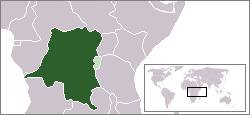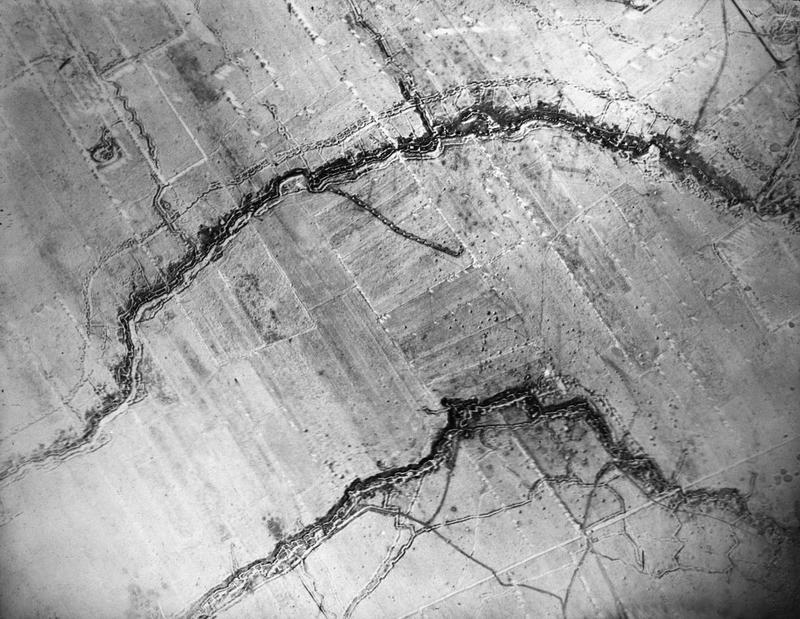|
Auguste Tilkens
Lieutenant General Auguste Tilkens (1869–1949) was a Belgian career soldier and colonial civil servant who served as Governor-General of the Belgian Congo from 1927 until 1934. Biography Auguste Tilkens was born in 1869 into a large family in the Flemish coastal city of Ostend. He entered the Royal Military Academy in 1887 and became an artillery officer in the Belgian Army. Following the outbreak of World War I in August 1914, during German invasion of Belgium, Tilkens served in the Belgian forces and was decorated for valour at the Battle of the Yser. In 1916, with emergence of static trench warfare on the Western Front, he volunteered for service in Belgian Congo where fighting had broken out on the colony's border with German East Africa. He served under Charles Tombeur during the subsequent fighting in East Africa. In 1917, he returned to Europe where he became aide de camp to King Albert I. After the end of World War I in 1918, Tilkens remained in the army and rose thr ... [...More Info...] [...Related Items...] OR: [Wikipedia] [Google] [Baidu] |
List Of Colonial Governors Of The Congo Free State And Belgian Congo
This is a list of European colonial administrators responsible for the territory of the Congo Free State and Belgian Congo (today the Democratic Republic of the Congo). International Association of the Congo Prior to the creation of the Congo Free State, the International Association of the Congo (IAC) had signed treaties with over 300 native Congolese chiefs and in effect exercised sovereignty over a large area of the Congo Basin. The IAC was headquartered in Belgium and run by a committee under the presidency of Maximilien Strauch. Prior to the creation of the office of Administrator-General, authority on the ground in the Congo had been exercised by a Chief of Expedition, who until April 1884 was Henry Morton Stanley. Congo Free State Administrators-General / Governors-General Vice Governors-General Belgian Congo On 1 July 1960, the Belgian Congo became independent as the Republic of the Congo (''République du Congo''). See also * Belgian colonial empire * Minist ... [...More Info...] [...Related Items...] OR: [Wikipedia] [Google] [Baidu] |
Trench Warfare
Trench warfare is a type of land warfare using occupied lines largely comprising military trenches, in which troops are well-protected from the enemy's small arms fire and are substantially sheltered from artillery. Trench warfare became archetypically associated with World War I (1914–1918), when the Race to the Sea rapidly expanded trench use on the Western Front starting in September 1914.. Trench warfare proliferated when a revolution in firepower was not matched by similar advances in mobility, resulting in a grueling form of warfare in which the defender held the advantage. On the Western Front in 1914–1918, both sides constructed elaborate trench, underground, and dugout systems opposing each other along a front, protected from assault by barbed wire. The area between opposing trench lines (known as " no man's land") was fully exposed to artillery fire from both sides. Attacks, even if successful, often sustained severe casualties. The development of armoured ... [...More Info...] [...Related Items...] OR: [Wikipedia] [Google] [Baidu] |
Special Committee For Katanga
Special or specials may refer to: Policing * Specials, Ulster Special Constabulary, the Northern Ireland police force * Specials, Special Constable, an auxiliary, volunteer, or temporary; police worker or police officer Literature * ''Specials'' (novel), a novel by Scott Westerfeld * ''Specials'', the comic book heroes, see ''Rising Stars'' (comic) Film and television * Special (lighting), a stage light that is used for a single, specific purpose * ''Special'' (film), a 2006 scifi dramedy * ''The Specials'' (2000 film), a comedy film about a group of superheroes * ''The Specials'' (2019 film), a film by Olivier Nakache and Éric Toledano * Television special, television programming that temporarily replaces scheduled programming * ''Special'' (TV series), a 2019 Netflix Original TV series * ''Specials'' (TV series), a 1991 TV series about British Special Constables * ''The Specials'' (TV series), an internet documentary series about 5 friends with learning disabiliti ... [...More Info...] [...Related Items...] OR: [Wikipedia] [Google] [Baidu] |
National Institute For Agronomy In Belgian Congo
The National Institute for Agronomic Study of the Belgian Congo (french: link=no, Institut national pour l'étude agronomique du Congo belge (INÉAC), nl, Nationaal Instituut voor de Landbouwkunde in Belgisch-Congo (NILCO) ) was a research facility established in Yangambi in the Belgian Congo, operating from 1933 to 1962. INEAC was established as a successor to the ''Régie des Plantations de la Colonie'' (REPCO). The INEAC experimental fields and research facilities were built along the north bank of the Congo River, and along a road stretching northward from the river for about . The goal of this institute was to follow a more scientific approach with regards to agricultural policies and innovations, and to promote the diffusion of agricultural innovations and know-how under the Congolese farmers. The creation of this institute was part of a larger 'indigenous peasantry programme'. This policy aimed to modernize indigenous agriculture by assigning plots of land to individual ... [...More Info...] [...Related Items...] OR: [Wikipedia] [Google] [Baidu] |
Provinces Of The Democratic Republic Of The Congo
Article 2 of the Constitution of the Democratic Republic of the Congo divides the country into the capital city of Kinshasa and 25 named provinces. It also gives the capital the status of a province. Therefore, in many contexts Kinshasa is regarded as the 26th province. List History When Belgium annexed the Belgian Congo as a colony in November 1908, it was initially organised into 22 districts. Ten western districts were administered directly by the main colonial government, while the eastern part of the colony was administered under two vice-governments: eight northeastern districts formed Orientale Province, and four southeastern districts formed Katanga. In 1919, the colony was organised into four provinces: * Congo-Kasaï (five southwestern districts), * Équateur (five northwestern districts), * Orientale Province and Katanga (previous vice-governments). [...More Info...] [...Related Items...] OR: [Wikipedia] [Google] [Baidu] |
Economic Crisis
An economy is an area of the production, distribution and trade, as well as consumption of goods and services. In general, it is defined as a social domain that emphasize the practices, discourses, and material expressions associated with the production, use, and management of scarce resources'. A given economy is a set of processes that involves its culture, values, education, technological evolution, history, social organization, political structure, legal systems, and natural resources as main factors. These factors give context, content, and set the conditions and parameters in which an economy functions. In other words, the economic domain is a social domain of interrelated human practices and transactions that does not stand alone. Economic agents can be individuals, businesses, organizations, or governments. Economic transactions occur when two groups or parties agree to the value or price of the transacted good or service, commonly expressed in a certain currency. Howe ... [...More Info...] [...Related Items...] OR: [Wikipedia] [Google] [Baidu] |
Great Depression
The Great Depression (19291939) was an economic shock that impacted most countries across the world. It was a period of economic depression that became evident after a major fall in stock prices in the United States. The economic contagion began around September and led to the Wall Street stock market crash of October 24 (Black Thursday). It was the longest, deepest, and most widespread depression of the 20th century. Between 1929 and 1932, worldwide gross domestic product (GDP) fell by an estimated 15%. By comparison, worldwide GDP fell by less than 1% from 2008 to 2009 during the Great Recession. Some economies started to recover by the mid-1930s. However, in many countries, the negative effects of the Great Depression lasted until the beginning of World War II. Devastating effects were seen in both rich and poor countries with falling personal income, prices, tax revenues, and profits. International trade fell by more than 50%, unemployment in the U.S. rose to 23% and ... [...More Info...] [...Related Items...] OR: [Wikipedia] [Google] [Baidu] |
State Visit
A state visit is a formal visit by a head of state to a foreign country, at the invitation of the head of state of that foreign country, with the latter also acting as the official host for the duration of the state visit. Speaking for the host, it is generally called a state reception. State visits are considered to be the highest expression of friendly bilateral relations between two sovereign states, and are in general characterised by an emphasis on official public ceremonies. Less formal visits than a state visit to another country with a lesser emphasis on ceremonial events, by either a head of state or a head of government, can be classified (in descending order of magnitude) as either an official visit, an official working visit, a working visit, a guest-of-government visit, or a private visit. In parliamentary democracies, while heads of state in such systems of government may formally issue and accept invitations, they do so on the advice of their heads of government, ... [...More Info...] [...Related Items...] OR: [Wikipedia] [Google] [Baidu] |
Lieutenant General
Lieutenant general (Lt Gen, LTG and similar) is a three-star military rank (NATO code OF-8) used in many countries. The rank traces its origins to the Middle Ages, where the title of lieutenant general was held by the second-in-command on the battlefield, who was normally subordinate to a captain general. In modern armies, lieutenant general normally ranks immediately below general and above major general; it is equivalent to the navy rank of vice admiral, and in air forces with a separate rank structure, it is equivalent to air marshal. A lieutenant general commands an army corps, made up of typically three army divisions, and consisting of around 60 000 to 70 000 soldiers (U.S.). The seeming incongruity that a lieutenant general outranks a major general (whereas a major outranks a lieutenant) is due to the derivation of major general from sergeant major general, which was a rank subordinate to lieutenant general (as a lieutenant outranks a sergeant major). In contrast, ... [...More Info...] [...Related Items...] OR: [Wikipedia] [Google] [Baidu] |
Belgian Air Force
The Belgian Air Component ( nl, Luchtcomponent, french: Composante air) is the air arm of the Belgian Armed Forces, and until January 2002 it was officially known as the Belgian Air Force ( nl, Belgische Luchtmacht; french: Force aérienne belge). The Belgian military aviation was founded in 1909 and is one of the world's oldest air services. The commander is Major General Thierry Dupont, appointed on 17 September 2020. History Foundation and early years The Belgian military aviation was founded in 1909 as a branch of the Belgian Army, carrying the name . King Albert's interest in the military use of aircraft was the main impetus for its formation. Coincidentally, in the civil aviation sector, Baron Pierre de Caters earned the first civil pilot's brevet that same year. De Caters would promptly establish an aviation school. At approximately the same time, the War Ministry followed the French military's example and had pilots earn a civil pilot's brevet before their military one ... [...More Info...] [...Related Items...] OR: [Wikipedia] [Google] [Baidu] |



_per_capita_in_2020.png)

